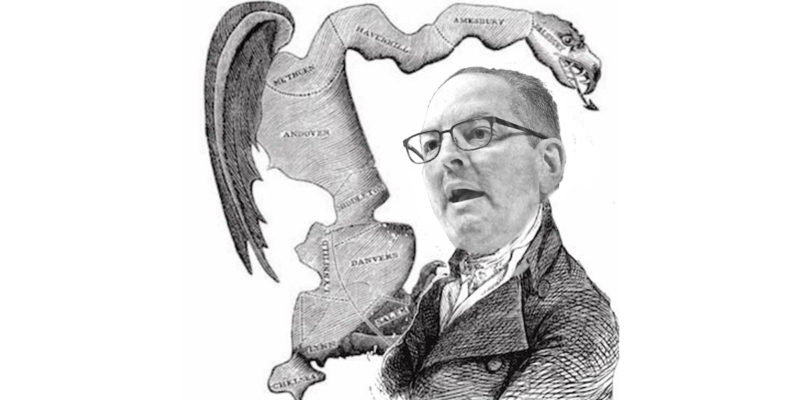Seven months from now Louisiana voters will vote for their district representatives in Congress and likely contribute in a small way in giving the GOP control of the US House of Representatives.
As things stand now, five of Louisiana’s six members of Congress are Republicans and all are unlikely to be defeated for re-election, to the utter chagrin of the New Orleans-based newspaper editorialists who regularly gnash their teeth over the gentleman from Lafayette.
Louisiana neither gained or (this time) lost a seat in Congress based upon the 2020 Census numbers and there was no reason to drastically redraw the lines aside adjusting for minor population shifts in the state.
North Louisiana will retain two seats, Acadiana will keep its seat as will Baton Rouge while the New Orleans area will split two seats between the heavily Democratic city and the Republican suburbs that ring it.
All six districts are not only anchored by their population centers but have also elected members who reside in or near the main cities.
Naturally there is a degree of geographical meandering to account for population balancing though the districts mostly reflect the predominant political views of the district and shared economic interests.
For example, Congresswoman Julia Letlow has an agriculture-centered district while her northern neighbor Mike Johnson’s district is home to two major military installations. Furthermore, there will now be three coastal advocates in the delegation for the first time since the 1980s when Louisiana had eight seats.
It’s understandable that the finished product that was passed by the legislature is not universally embraced by the entire delegation – though the plan adopted is far better than alternatives offered by Democrats, including a few that absurdly carved Lafayette into three federal districts.
Governor John Bel Edwards’ veto of both Speaker Clay Schexnayder’s HB 1 and State Senator Sharon Hewitt’s SB 5 was unsurprising; Governor Edwards is a Democrat and owes his election more to his leftist base that provided the foundation of support than the smattering of moderates that supplied his modest margin of victory.
His party and their affiliated interest groups want to Louisiana to have two Democratic-leaning congressional districts. Though they claim to be defending racial justice in their arguments, the truth is their primary aim is the advancement of their party and not a demographic group per se.
After a close call in the attempt to override the governor’s veto of the bill restricting high school women’s sports to actual women, the prospect of overturning JBE’s congressional map vetoes appears to be very promising.
Not only would doing so resolve the state’s congressional map in advance of court challenges that are already filed, but would redefine the out-of-balance power relationship between the executive branch and the legislative branch.
This is long overdue, not just from a partisan view but also in terms of political structure.
Louisiana has one of the most powerful gubernatorial offices in the country in no small part due to the legislature’s reluctance to even challenge his vetoes.
This is a two-fer for the Republican legislative delegation and I would hope members of the caucus recognize as such, even if grudgingly so by the handful of Republicans who voted against the final congressional remap bills.
Advertisement
This week’s veto override votes is a choice between Nancy Pelosi and Julia Letlow (who would be ousted if the Democrats have their way). It’s also a choice between further empowering the Republican legislative majorities or the Democratic governor.
It’s a stark choice that can’t be explained away or justified by Republican representatives and senators, only owned.
Good luck pitching a “you see what happened was…” at a candidate forum come election time and be prepared to have Nancy Pelosi’s smiling face landing in mailboxes in the districts of Republicans who don’t support the override by ballot or absence.
And this applies to non-Republicans who represent Trump-friendly areas.
Now there are some voices arguing that the failure to override just means that it’s simply back to the drawing board and a better map can be developed in the session.
First, that proposed map is going to be vetoed leading to yet another interruption of the 2022 legislative session to consider that override.
And second, the Democrats have already anticipated this and party leaders and operatives filed in the 19th Judicial District Court a law suit claiming an impasse and requesting that a judge redraw the districts as he sees fit.
This is the Hail Mary play the Democrats are executing as their only hope to create two friendly districts as they lack the support in the legislature to pass such a plan.
Republican legislators should needlessly avoid playing judicial roulette on the state’s congressional map while finally scoring an unmistakable victory over the Fourth Floor by unanimously supporting the veto override this week.
Doing otherwise would be reckless and potentially result in a far less satisfactory outcome than the implementation of the plans that were vetoed by the governor.
Advertisement
Advertisement

